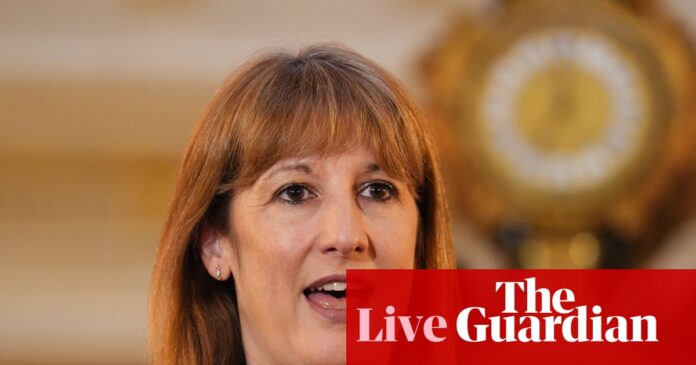Anthony Albanese was so pleased about his first meeting with Donald Trump, so chuffed with the overwhelming – and somewhat unexpected – praise from the president, the prime minister joked that he’d use the endorsements in his campaign ads at the next election.
That’s obviously unlikely to happen – consider the effective campaign Albanese ran against Peter Dutton by comparing him to Trump, and the Labor left flank already ropable over what they view as a fawning and “shameful capitulation” over Aukus and critical minerals.
But the comment shows the level of satisfaction the Australian leader will take away from his face-to-face with Trump. Not only was there no disaster or real embarrassment in the unpredictable Trump White House, but almost every single opposition claim that the government had bungled the US relationship was found to be simply hot air.
Trump will be mad Australia hasn’t spent more on defence? The president waved it away – “You can only do so much.”
Concern over recognising Palestine or action on climate change? Ignored.
Sign up: AU Breaking News email
Aukus, painted by some critics as imperilled by an ongoing Pentagon review, was not only thoroughly praised by Trump but endorsed to move faster.
A major critical minerals agreement will see billions of US investment pumped into Australia, the deal signed by the two leaders in signature Trump black texta.
Much will be made of Trump telling Australian ambassador Kevin Rudd (perhaps jokingly or theatrically) “I don’t like you”, even if the president later drew a line under the non-scandal by saying “all is forgiven”.
The best criticism that opposition leader Sussan Ley could muster after the meeting was that Albanese hadn’t gotten US tariffs dropped further (Trump noted Australia had one of the “lightest” arrangements in the world) and that Rudd was ineffective as ambassador because the president didn’t recognise his face.
Even if you accept the latter as true, it clearly hasn’t hurt Australia’s standing in Washington. The unpredictable and explosive Trump was at his effusive best, praising Albanese as a “great prime minister” and Australia as “an amazing ally … there’s never been any games.”
From the Pacific islands to the president’s front porch, it has been a whiplash of a White House visit for a prime minister who was, until a few days ago, relaxing on a tropical beach.
Like an office worker looking to maximise their annual leave downtime, Albanese booked his holiday right up to the last minute before returning to the grind, finishing up in the Pacific on Sunday morning before meeting his official jet to fly directly to Washington.
Albanese has taken fire from the Coalition opposition since before Trump’s inauguration nine months ago: for not setting up a meeting sooner, that every day without a meeting saw Trump drift further from Australia, and that a lack of face time endangered our biggest partnership.
It seems someone forgot to tell Trump. The president repeatedly praised the “great” Albanese, feted him with a lunch alongside key US powerbrokers in the stately cabinet room and resisted numerous opportunities of softball questions to take a swing at Australia’s actions.
Albanese was kind back to Trump, acknowledging the “great honour” of a White House visit and the “extraordinary achievement” of the Middle East ceasefire (even as the deal teeters amid violence and hostage returns). But there was no slavish praise of Trump like some other world leaders, no gaudy gift or Nobel prize nomination.
after newsletter promotion
One wrinkle, mentioned briefly then fobbed off by Trump, was navy secretary John Phelan’s statement calling to “improve” the Aukus plan and “clarify some of the ambiguity”. Asked for clarification, Trump dismissed it as “minor details”.
Despite Trump’s major endorsement of the nuclear submarine deal, questions still remain over Aukus – and the mysterious “ambiguities” in the arrangement that Trump’s navy boss wants to update.
In a deal costing the Australian taxpayer upwards of $360bn, including at least $2bn to be poured directly into American shipyards, we deserved more clarity on this. It remains unclear what updates Trump wants to make to the deal signed by predecessor Joe Biden, whom he sledged numerous times as “incompetent”. The Australian government isn’t saying anything either.
Labor Against War, the internal group of grassroots members vehemently opposed to the Aukus pact, voiced “deep concern” over what it called Albanese’s intention of “selling off the family silver” in the critical minerals deal. While the US will inject billions into Australian mining projects, government factsheets say those deposits could yield resources worth many factors more than Trump’s government is contributing – with America to get prime access through offtake agreements, and convincing Australia to agree to block some sales to other countries on “national security” grounds.
“This is a shameful capitulation,” said former Labor senator Doug Cameron.
“Selling off Australian strategic assets is a catastrophic loss of future wealth and is [a] reckless tribute to a fickle and unreliable president for a deal that fundamentally suits the White House.”
Cameron foreshadowed a campaign calling on Labor branches to speak out against the deal, claiming Aukus was being used “to justify giving away the minerals that should underpin Australia’s renewable and manufacturing future”.
Albanese, referencing his government’s signature Future Made In Australia plan – of which critical minerals processing is a central pillar – told Trump it was “a bit similar to putting America First”.
But he probably won’t be putting that on his election campaign ads either.
Disclaimer : This story is auto aggregated by a computer programme and has not been created or edited by DOWNTHENEWS. Publisher: theguardian.com






